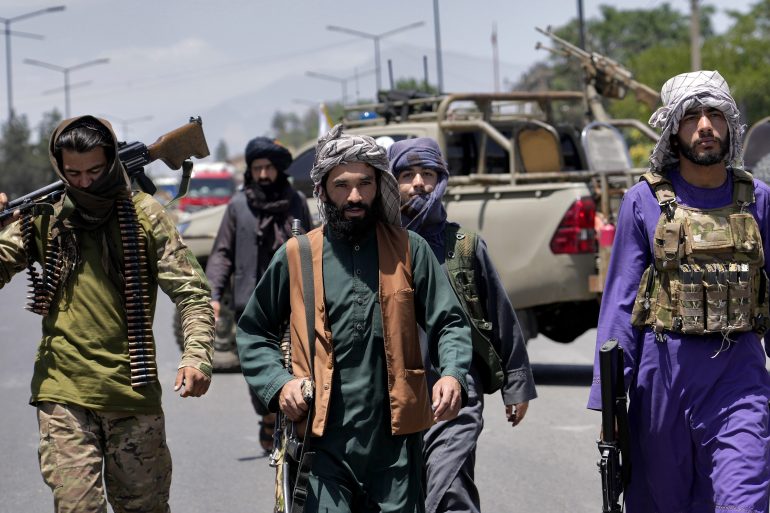
Taliban has marked the first anniversary of its return to power in Afghanistan, as its members celebrated a ‘day of victory’, chanting slogans next to the former US embassy in the capital, Kabul.
Exactly a year ago, the group captured Kabul after a nationwide lightning offensive against government forces just as US-led troops were ending two decades of intervention in a conflict that cost tens of thousands of lives.
“We fulfilled the obligation of jihad and liberated our country,” said Niamatullah Hekmat, a Taliban fighter who entered the capital on August 15 last year just hours after then-President Ashraf Ghani fled the country.
“It’s the day of victory and happiness for the Afghan Muslims and people. It is the day of conquest and victory of the white flag,” government spokesman Bilal Karimi said on Twitter.
The chaotic withdrawal of foreign forces continued until August 31, with tens of thousands of people rushing to Kabul’s airport hoping to be evacuated on any flight out of Afghanistan.
Since the takeover Afghanistan’s economy has collapsed, women have been stripped of their rights, and millions of people do not know where their next meal will come from.
Many restrictions have been imposed on women. Tens of thousands of girls have been shut out of secondary schools, while women have been barred from returning to many government jobs.
According to Save the Children, more than 45 percent of girls said they are not attending school – compared with 20 percent of boys – listing economic challenges.
In May, women were ordered to fully cover up in public, including their faces, ideally with an all-encompassing burqa.
“From the day they have come, life has lost its meaning,” said Ogai Amail, a resident of Kabul. “Everything has been snatched from us, they have even entered our personal space,” she added.
While Afghans acknowledge a decline in violence since the Taliban seized power, the humanitarian crisis has left many helpless.
A report by Save the Children, titled Breaking point: Life for children one year since the Taliban takeover, showed that 97 percent of Afghan families were struggling to provide enough food for their children, and that almost 80 percent of children said they had gone to bed hungry in the past 30 days.
“People coming to our shops are complaining so much of high prices that we shopkeepers have started hating ourselves,” said Noor Mohammad, a shopkeeper from Kandahar, the de facto power centre of the Taliban.
The country is in economic crisis, with its overseas assets frozen by Washington and aid curtailed in order to keep funds out of the Taliban’s hands.
UNICEF representative in Afghanistan, Mohamed Ag Ayoya, told Al Jazeera that the past year has been “tough” for Afghans overall and for humanitarians trying to support the country.
Reporting from Kabul, Al Jazeera’s Osama Bin Javaid said Afghan people have witnessed many broken promises.
“The broken promises are not just about women’s rights and the economy, it’s about providing Afghans with a future they can look forward to,” he said.
“If you speak to the Taliban, they say they have achieved a lot but if you walk about the streets, the situation is very desperate,” he added.
No comments:
Post a Comment